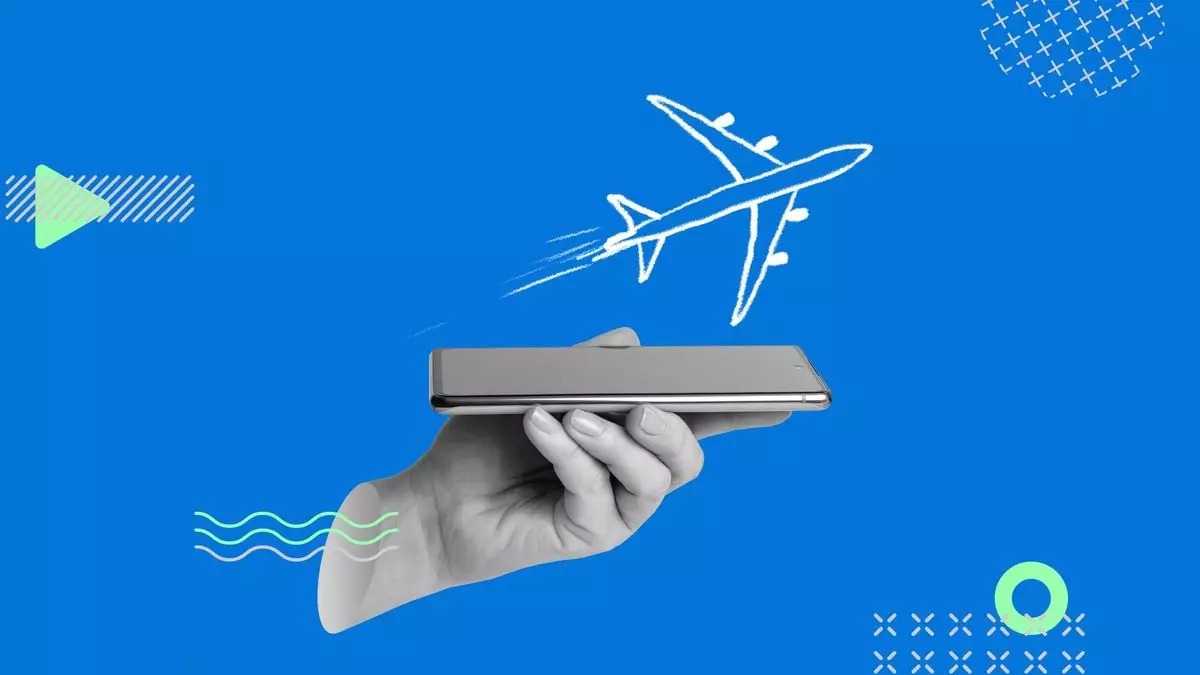United Airlines’ recent upgrade to its New Distribution Capability (NDC) brings a wave of excitement for travel management companies (TMCs) and advisors alike. Dubbed “Tie-Goes-to-NDC Day” by Jeff Klee, CEO of AmTrav, this milestone reflects a substantial evolution in how airlines and travel advisors interact. The underlying technology not only democratizes price parity but also introduces additional benefits that elevate the NDC experience above traditional booking methods.
NDC is fundamentally a technology framework that allows airlines to distribute their content more effectively. It promotes a more dynamic pricing model and the capability to offer a broader array of services not available in legacy systems. For TMCs that adopt these NDC features, it signifies a shift from merely chasing cheaper flights to maximizing the value of the booking process. The significance of such advancements cannot be overstated; it could reshape the travel industry’s approach to e-commerce.
Enhanced User Experience Through Efficient Workflows
One of the major accomplishments in this latest upgrade is the introduction of ticket exchange capabilities, allowing travel agencies to shift from legacy to NDC tickets without the cumbersome process of initiating that choice upfront. This flexibility resonates deeply with TMCs and corporate clients looking to streamline their workflows. Yet, the beauty of this evolution is not just in its mechanics but in how it aligns with the inherent needs of modern travel managers.
Travel advisors are often at the crossroads of decision-making when it comes to flight selection. The ability to apply unused ticket credits at the end of the booking flow is another significant enhancement that reflects an understanding of advisors’ typical processes. Instead of making hurried decisions, advisors can shop for the best options and only then decide on credits.
Klee emphasizes the point that “exciting” changes stem from the need to prioritize user experience. By eliminating some of the previous hurdles in the booking process, United has effectively made their NDC platform a more attractive option for travel professionals.
The Complex Balance of Technology and Traditional Systems
However, while United’s NDC rollout brings about a host of enhancements, it is not without its challenges. For agencies that rely heavily on Global Distribution Systems (GDS), such as Sabre, Travelport, or Amadeus, a portion of these advancements remains elusive. This creates a two-tier system in the industry, causing disparities in access to essential features.
Travelers may find themselves caught between the impressively innovative capabilities offered through direct connections and the more static processes of traditional GDS platforms. Klee’s insights serve as a grim reminder that while innovation moves forward, the reality for many agencies still involves navigating limitations imposed by their technological choices.
The greater concern lies with agencies that lack the tech infrastructure to embrace NDC fully. This segment faces a significant uphill battle in ensuring they can provide comprehensive travel options to their clients. Peter Vlitas of Internova Travel Group succinctly points out that without direct NDC connections to airline APIs, many in the travel advisory space feel left behind.
Missing Links: Addressing Servicing Gaps in United’s NDC
Despite these technological strides, there remain notable servicing gaps in United’s NDC application. For instance, when exceptions to ticketing rules arise, existing constraints don’t provide a mechanism to ensure proper pricing, as is facilitated by legacy systems. Such oversights could discourage agencies from fully migrating to NDC, as lingering inefficiencies can impact client service.
United’s commitment to refining this technology is critical, especially as they look to enhance and automate transactions further, like automated name changes for corporate travel. These improvements are essential, but they also underscore the ever-present reality of needing to keep pace with industry expectations—something that can be a difficult balance to achieve.
The Broader Implications for Ancillary Services and Fare Availability
Another substantial benefit of United’s NDC upgrade is its ability to expand fare availability and provide a wider range of ancillary services. Reports indicate that nearly half of United’s tickets are now sold via continuously priced fares—options not available through traditional GDS channels. This expansion is a game-changer for travel advisors striving to provide unparalleled service and value to their clients.
Moreover, the inclusion of ancillary products that are unique to NDC channels brings an added layer of complexity, which could either elevate the travel experience or complicate it depending on the agency’s technology stack. The disparity in accessible features across different platforms raises questions about equity in the industry.
Faced with such rapid technological evolution, it’s clear that successful integration of NDC will rely heavily on the adaptability of TMCs and the support systems they use. While United’s initiative demonstrates remarkable forward momentum, the industry’s future will hinge on how well stakeholders can respond to these transformative changes.


Leave a Reply